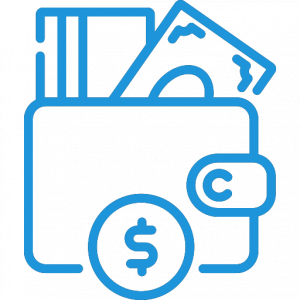Top-Rated Lawyer Augustus Claus has a long track record of successfully defending clients accused of serious crimes in Nevada. Most white-collar crimes are felony offenses under state and federal law. Each crime has its own specific definition and, in order to secure a conviction, a prosecutor must prove every element of the offense. Our white-collar defense team can help you to understand the specific things that a prosecutor needs to prove in order for you to be found guilty. You can also review brief summaries of white-collar crimes below to understand the basics of each type of offense that you could be accused of.
Forgery: Any person who passes, or attempts to pass, a false instrument as true and genuine can be found guilty of forgery if the prosecutor can prove that the person who passed the false instrument knew it was false and passed it with intent to defraud another person. Forging someone else’s name on financial documents is a common example of forgery, as is creating a copy of a painting and trying to pass it off as being painted by a professional artist.
Identity theft: identity theft involves the use of the personal, identifying information of another individual without permission in order to access money or property. Identity theft could involve the use of someone’s Social Security number, name and address to obtain credit cards, a personal loan, medical care, or other items of value.
Embezzlement: Embezzlement is a common white-collar crime in which a person who is entrusted to hold money or property abuses the trust and steals the money or property from its rightful owner. If an employee steals money out of company accounts, this is an example of embezzlement.
Mortgage lending fraud: Intentionally defrauding a bank to gain access or control over the bank’s money or property is punishable under state and federal law. Lying on a loan application is an example of a crime that could potentially be classified as Mortgage lending fraud.
Bribery: Bribery involves improper influence of an employee, a public official, a judge, juror, or witness in a court case, or athletes and referees in sporting events. Providing something of value to try to coerce an employee, public official, judge, juror, or witness would all potentially give rise to bribery charges. If a person on trial offered to make valuable campaign contributions to a judge if the judge ruled in his favor, this would be an example of bribery.
Conspiracy: An agreement between two or more people to commit a crime, even if they did not take any step to complete the crimes, is illegal in Las Vegas, Nevada. Making an agreement to violate the law can result in criminal charges for conspiracy. The prosecutor has to prove that an agreement was made and one of the co-conspirators took some type of action in furtherance of the conspiracy. This does not mean actually committing the crime. All co-conspirators could potentially be charged with conspiracy if anyone involved in the plot to commit an offense purchased any piece of equipment necessary to commit a crime.
Penalties: Penalties for “white-collar” offenses may include jail time, fines, and restitution. White-collar crime prosecution is on the rise and a conviction can jeopardize your professional licenses, reputation, and ability to work in the future.
If you have been arrested for white-collar crime in Nevada, Contact T. Augustus Claus/ATAC Law to begin your defense as soon as possible.



























